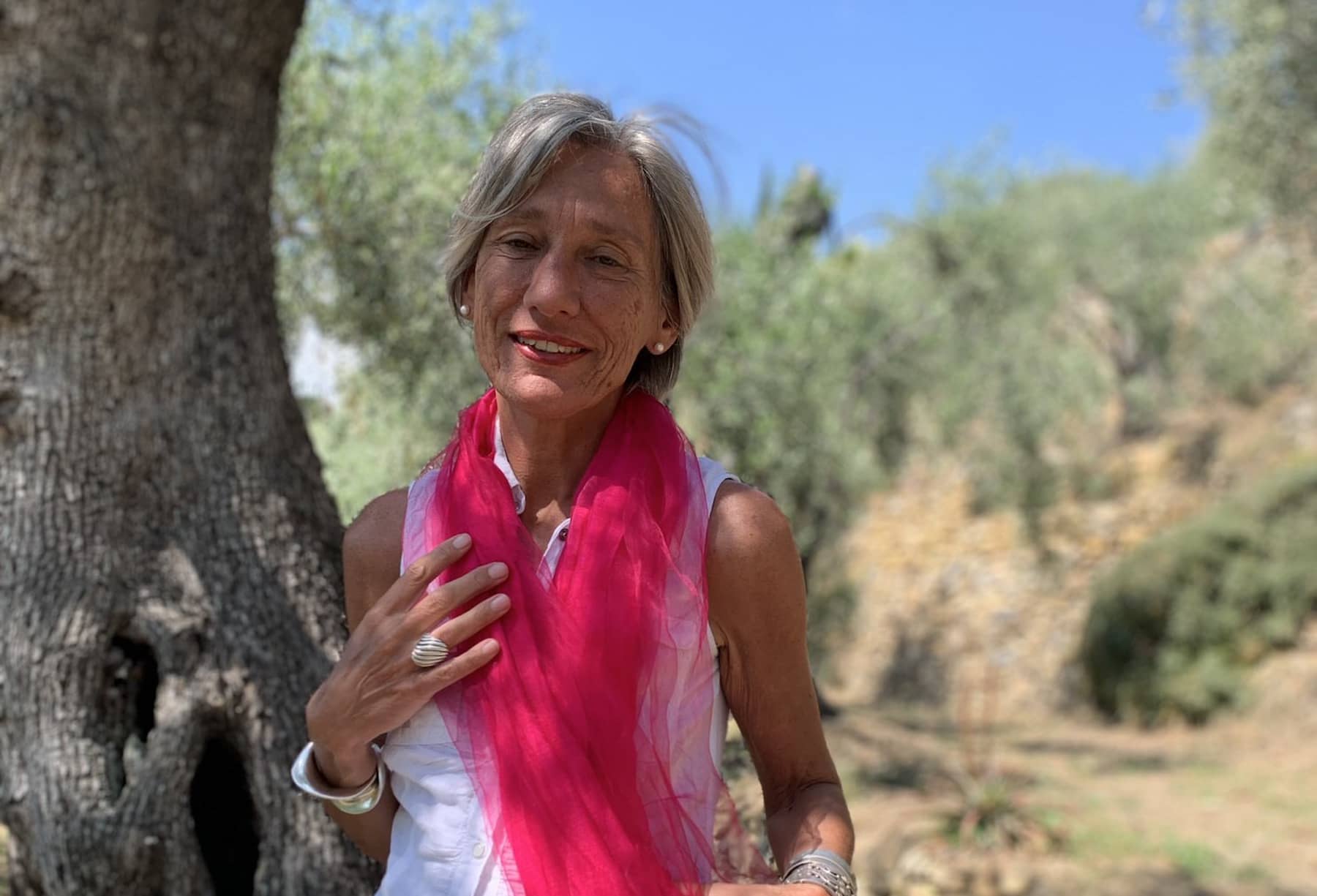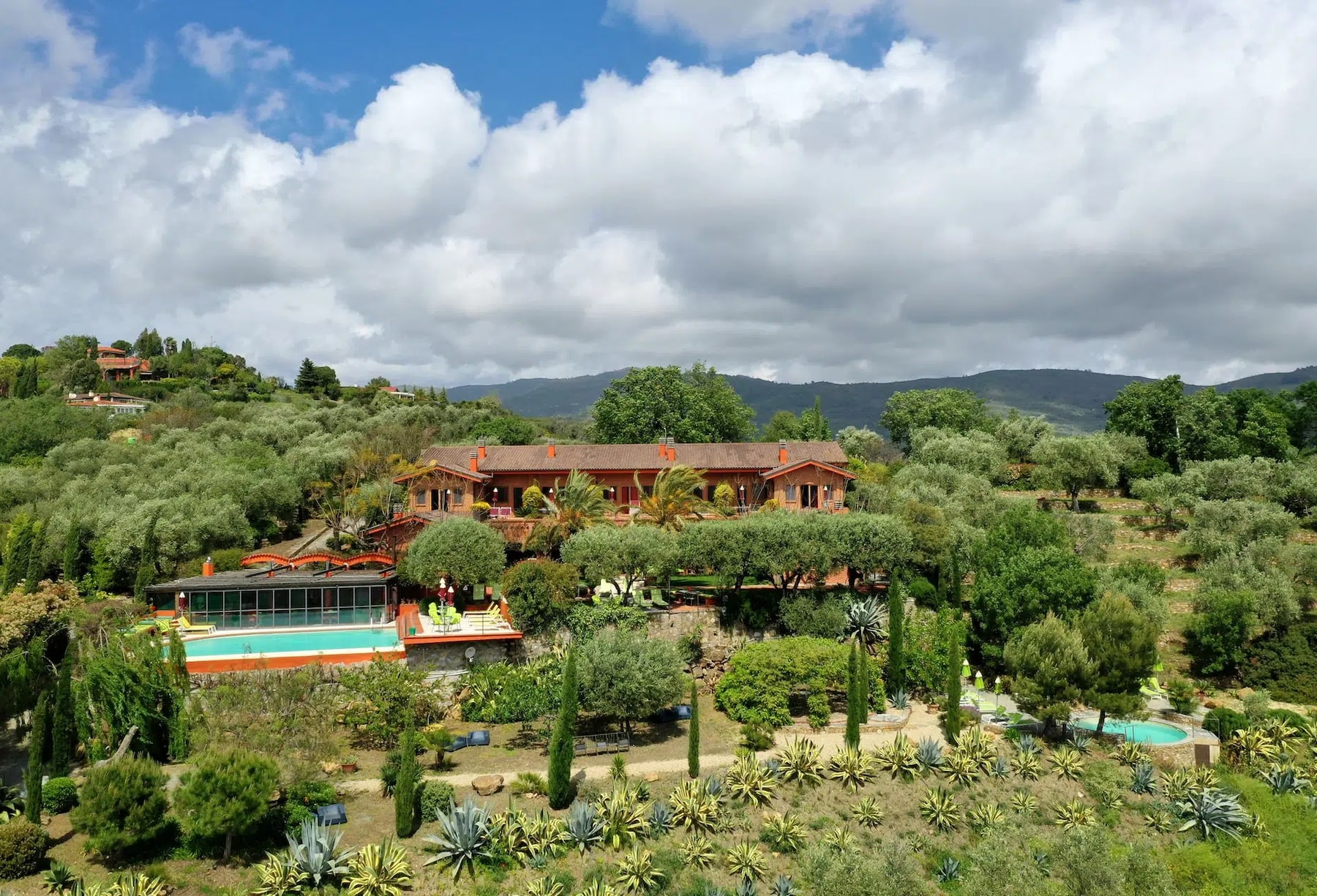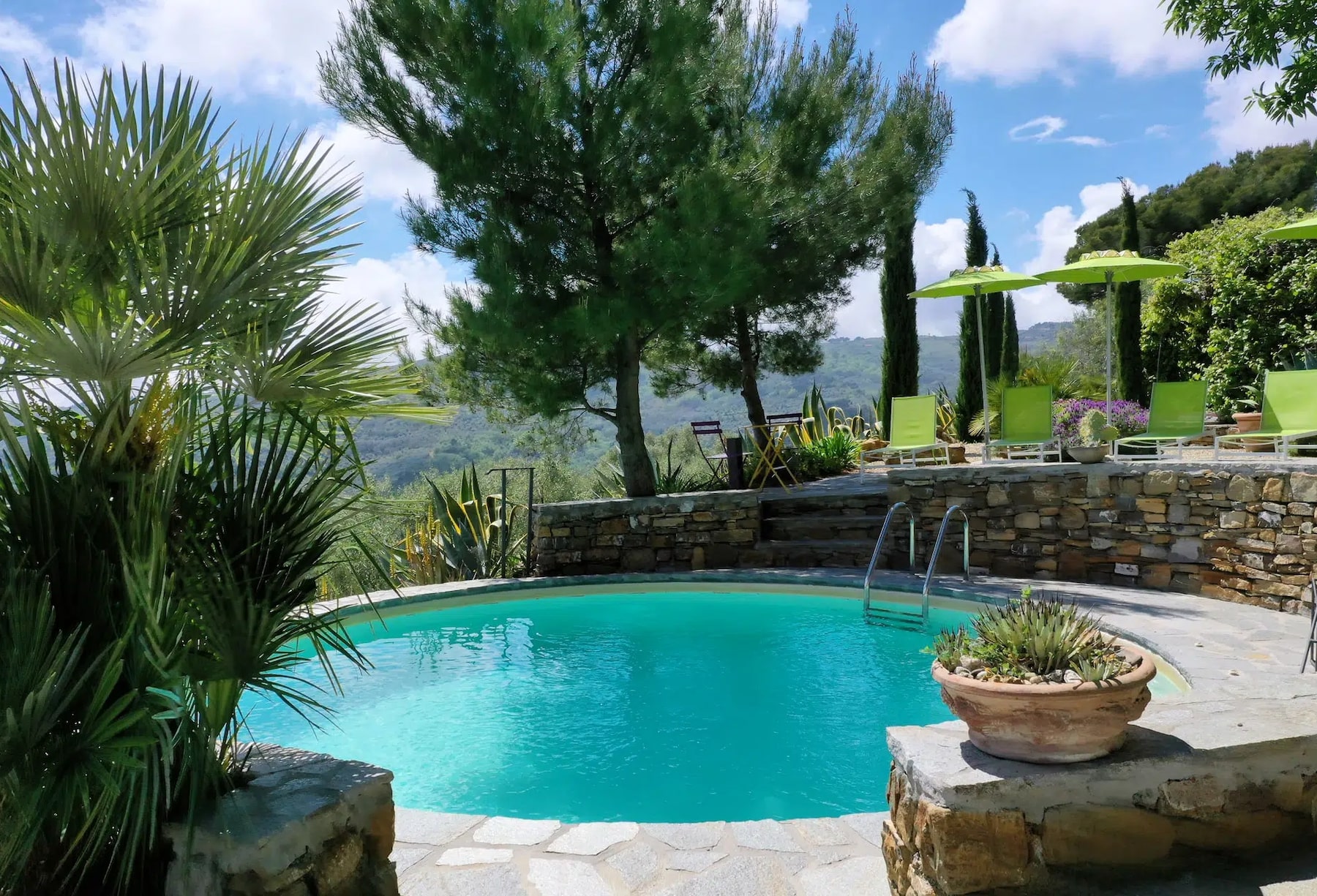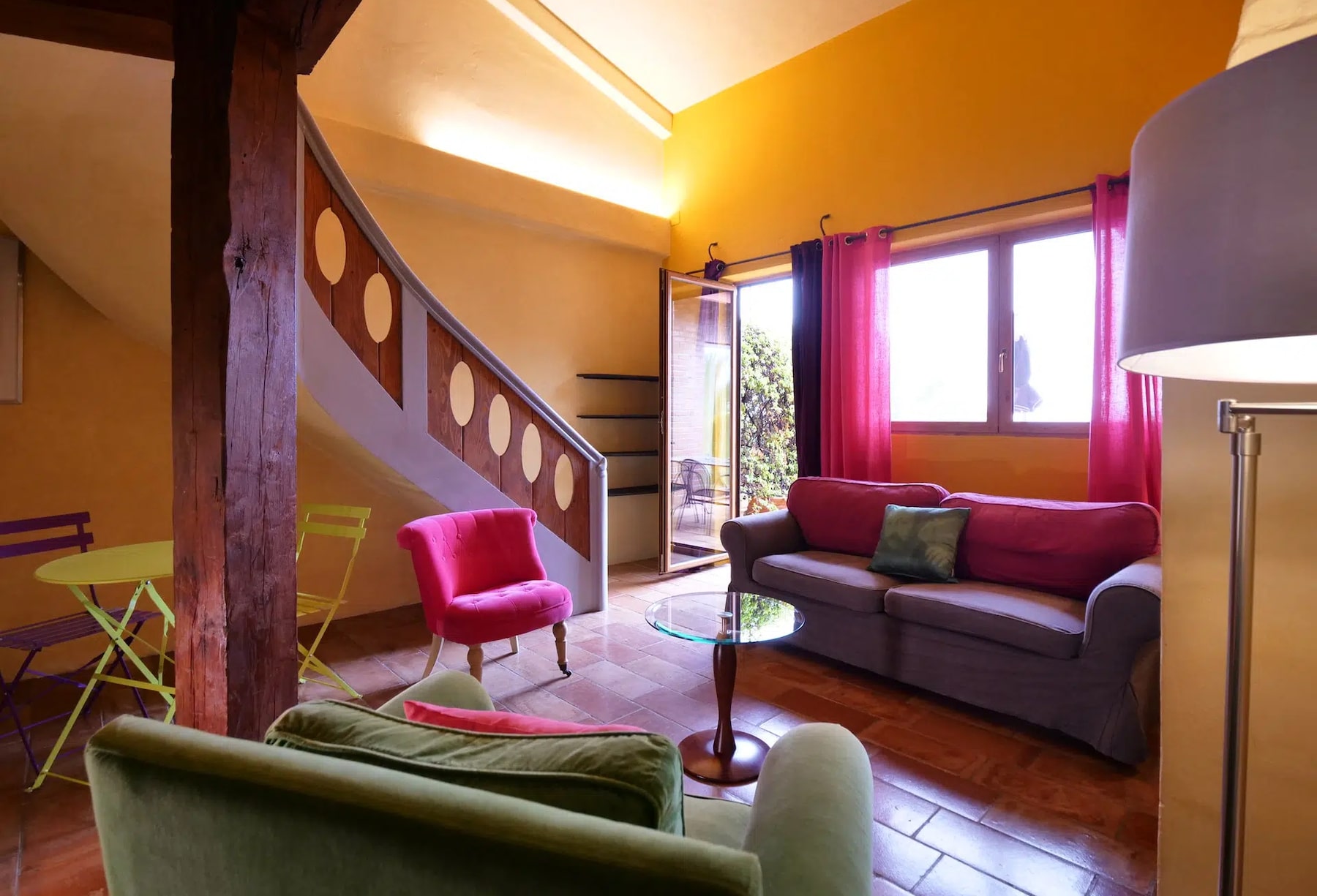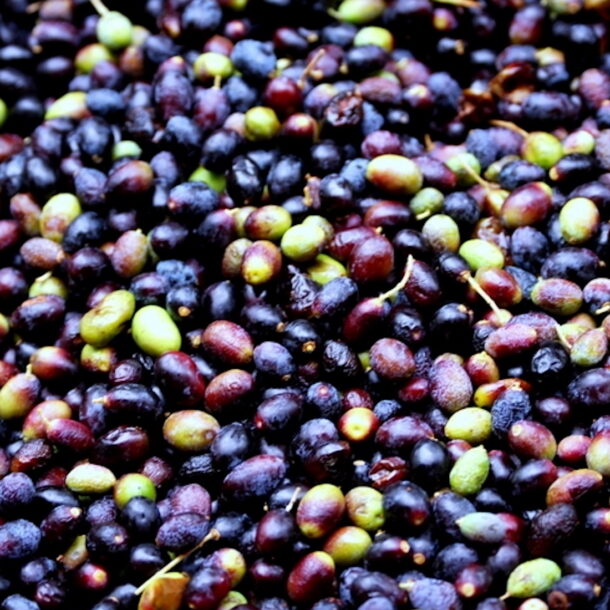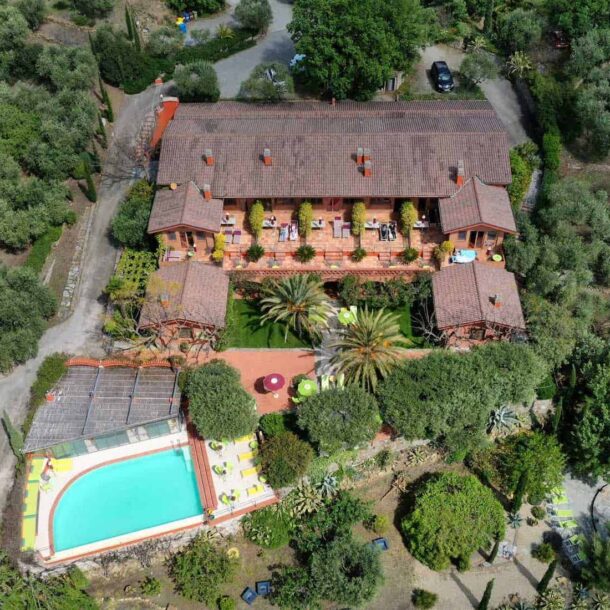
A House for All – Interview with host Pamela from San Damian
A House for All
This article has been translated from German. Please read the original version from Anja Fischer, Gründerin und CEO von Glücksmomente Charmingplaces, on www.charmingplaces.de
In the 1990s, our Charmingplaces hosts Pamela and Roberto created a small vacation paradise with their country hotel San Damian on the Ligurian coast, where you can feel completely at home.
Born in Vienna, the daughter of an American mother and a German father, Pamela grew up among many cultures and ways of life, in a house that always hosted new guests from all over the world.
In conversation with our hostess, we try to find out how her special childhood shaped her and why, despite a rootless background, she was able to create a place that feels like home to us. And why, to appease a restless mind, you don’t have to travel at all yourself.
Charmingplaces: Pamela, you spent your childhood in Liguria. When did you move there?
Pamela: It was in the seventies. My parents were young, explosive, dreamers, idealists, party people, restless, and decided – of course – that their place was in the south of Europe.
CP: The south of Europe has many exciting and beautiful places. Why did you choose Liguria?
Pamela: Liguria is simple and authentic, with the sea, a mild climate, open-minded and sociable people. We moved to a small village inland from Imperia, ironically called Isolalunga. Long Island. My grandmother is from New York.
CP: But this Long Island was probably in a much smaller cosmos. How were your worldly parents able to put down roots there?
Pamela: Our house, the renovated old bakery in the village, was a five-story house, full of stories and charm and always full of people. Friends came from all over the world.
Those who worked with Conrad Lawrence on ant research and lived for months in a tent on Monte Faudo, or those who worked in marine biology research. Guests who came from Japan and slept on the kitchen table because the mattress was too soft. From Australia with the latest technology and once even Miss Australia!
Some came from Persia and taught me a different and beautiful mathematics, some spent hours in meditation standing on their heads on the terrace. Others did pantomime theater, still others conducted orchestras.
In between came my mother’s old biology teacher from Massachusetts, JP the nun, who had made an interesting connection with the local curia and who took us around the European capitals, sleeping in monasteries.
CP: So the world came home to you. How did that shape you as a child?
Pamela: I was a quiet child, I observed and absorbed sensations, I understood many languages, I was curious but spoke little. I lived on this diversity. As an adolescent, I decided to deepen my great love for animals, which were always my best friends during my somewhat lonely childhood in winter in Liguria. I became a veterinarian to be able to help the animals, even the wild ones, on my own. But I couldn’t lock myself up in a studio or clinic for more than a few years. The need for movement and stimulation returned, which I could only satisfy by traveling.
CP: Where did your first travels take you?
Pamela: When school ended in June, I left with my mother to spend two months in the United States and Canada, fascinated by this world so different from Europe, by the huge spaces where everything was gigantic, from the milk bottle to the forests, lakes and deserts. There I experienced the wealth of the American bourgeoisie, the descent from a hero of the War of Independence (William Dawes), the abundance and the economic prosperity. Then, in August, I returned to Italy and went with my father to Hungary, where his brother lived (he had stayed in Hungary after the Russian invasion of 1956), to spend a whole month there, on the Danube, among vineyards and corn and sunflower fields. Here we got up at five in the morning to get the rationed bread, and my uncle carefully stored everything we brought from the West, starting with the plastic bags.
CP: Growing up among so many shifting cultures, your journeys into such contrasting worlds-how were you able to figure out which of all these was you?
Pamela: The vision of these distant worlds, which I was able to experience intensely without prejudice before the fall of the Berlin Wall, has greatly influenced my personality and life choices.
CP: Is there a good example of this?
Pamela: The adventure of our agriturismo! Together with my husband we have slowly and painstakingly built a wonderful place on the hills above the village of Isolalunga, where I used to play hide and seek as a child. The opportunity to combine my great love for nature with the feeling of welcome that I had breathed since childhood in the “open” house where I grew up. I could never call it “my” house, it was a house for “everyone”.
CP: And your need to travel doesn’t check in now?
Pamela: When my two daughters Viola and Emma came along, that need began to disappear in its old form. We created an open place for travelers who know how to uncover the mystery of the lesser-known places. The places that are not marked on the usual maps and are protected and guarded like a treasure. Today, as when I was a child, I still draw energy and passion from meeting people who come here from all over the world to appreciate the authentic simplicity and wonder of these places that have hardly changed in the last 50 years.
San Damian is a place that reflects the soul of Pamela. Open, worldly, a spot where after a few hours guests feel as if they have been here for a long time and yet can always discover new facets of their hosts. Like we did in this conversation. Thank you Pamela!
Contact Us
Codice CITRA 008031-AGR-0010
Codice CIN IT008031B5QAOGTCPT
- © 2024 San Damian
- Website by Casa Collina

